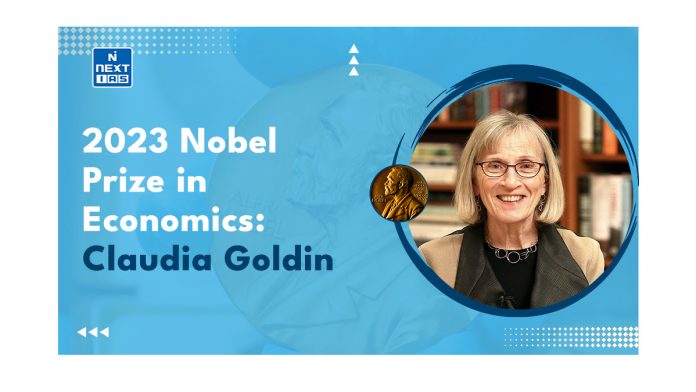The Nobel Prize in Economics also known as the Swedish Riksbank Prize was awarded to Claudia Goldin as she uncovered key drivers of gender differences in the labour market.
What is Nobel Prize in Economic Sciences?
The Nobel Prize in Economic Sciences, officially known as the Sveriges Riksbank Prize in Economic Sciences in Memory of Alfred Nobel, is indeed distinct from the other Nobel Prizes, such as Physics and Chemistry, which were established based on the will of Alfred Nobel. This distinction arises from the fact that the Nobel Prize in Economic Sciences was introduced in 1968 by the Sveriges Riksbank (Sweden’s central bank) separately from Alfred Nobel’s original will.
Nobel Prize in Economics 2023
Nobel Prize in Economics also known as the Sveriges Riksbank Prize in Economic Sciences in Memory of Alfred Nobel for 2023 has been awarded to Claudia Goldin of Harvard University, Cambridge, MA, USA, in recognition of her remarkable contributions to our understanding of women’s labour market outcomes.
Goldin’s achievement of getting the Nobel Prize in Economics marks only the third instance of a woman receiving this prestigious accolade. The previous instances include Elinor Ostrom, who was honoured alongside Oliver E. Williamson in 2009, and Esther Duflo, who shared the award with Abhijit Banerjee and Michael Kremer in 2019.
Why has Claudia Goldin been awarded the Nobel Prize in Economics?
Claudia Goldin’s pioneering research has unveiled crucial insights into the factors driving gender disparities in the labour market. This has been duly recognised in the form of a Nobel Prize in Economics. Her comprehensive investigation spans over two centuries of data from the United States, shedding light on how and why gender differences in employment and earnings have evolved.
What are the areas of work of Claudia Goldin?
Claudia Goldin’s area of work links the women centric issues with economic growth. The issues of gender pay gap, role of contraceptives, societal and other factors have been the focus areas of Goldin’s work. The detailed analysis is as under:
Gender Gap
- Despite advancements in modernization and the increasing participation of women in the labour force, the gender pay gap persisted for an extended period.
- Goldin’s research revealed that this gap largely emerges with the birth of the first child, challenging the conventional wisdom that educational and occupational choices solely accounted for earnings disparities.
U-shaped Trajectory of Female Labour Force Participation Rate (FLFPR)
- One of her notable findings is that female labour force participation followed a U-shaped trajectory, declining as the economy shifted from agrarian to industrial in the nineteenth century and subsequently rebounding with the growth of the service sector in the early twentieth century.
- Goldin attributed this pattern to changing social norms and structural shifts that reshaped women’s roles in home and family life.
- Thus, it is not just economic growth that determines the participation of women in the employment sector. There are other factors that also play a role in the FLFPR.
Role of Contraceptive Pills
- Goldin highlighted the pivotal role of the contraceptive pill in empowering women to make career choices, propelling significant change.
Role of Marriage
- Claudia Goldin highlighted that a set of regulations, commonly referred to as “marriage bars,” frequently hindered married women from pursuing careers as teachers or office professionals.
- This exclusion of married women from specific segments of the labour market persisted despite a growing labour force demand.
How can Claudia Goldin’s work contribute to society?
Claudia Goldin’s work has illuminated critical aspects of women’s economic participation, shedding light on the evolving dynamics and challenges. Her groundbreaking research provides invaluable insights for policymakers and society at large, offering a path toward addressing barriers and achieving greater gender equality in the labour market. Though the area of Goldin’s work is primarily based out of United States of Americal but it finds relevance in other countries with the similar underlying issues.
Source: Nobel Prize in Economics









